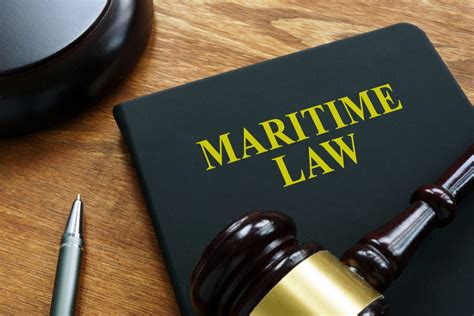
- Introduction
- Territorial Waters: A Sovereign’s Domain
- Exclusive Economic Zone: Resource Management and Beyond
- High Seas: Beyond National Jurisdiction
- Jurisdiction Matrix: A Guide to Maritime Boundaries
- Conclusion
-
FAQ about Maritime Law Jurisdiction
- Where does maritime law apply?
- What types of activities are covered by maritime law?
- Who is subject to maritime law?
- How far offshore does maritime law apply?
- Are there any exceptions to maritime law jurisdiction?
- What are the penalties for violating maritime law?
- How can I find out more about maritime law?
- Is maritime law the same in all countries?
- What are the key principles of maritime law?
- How is maritime law enforced?

Introduction
Greetings, readers! In today’s maritime legal expedition, we venture into the vast waters of "where maritime law applies." As we embark on this journey, prepare to navigate the intricate boundaries and jurisdictions that govern the high seas.
Maritime law, a complex and evolving body of regulations, plays a vital role in ensuring safety, fairness, and order in the maritime domain. Understanding its scope of application is crucial for all seafarers, boaters, and anyone involved in maritime activities.
Territorial Waters: A Sovereign’s Domain
Definition and Extent
Territorial waters refer to the coastal waters over which a nation exercises exclusive authority. The United Nations Convention on the Law of the Sea (UNCLOS) generally defines territorial waters as extending up to 12 nautical miles from the baseline of the coastal state.
Exclusive Jurisdiction
Within its territorial waters, a coastal state enjoys exclusive jurisdiction over all matters, including maritime law enforcement, environmental protection, and the regulation of navigation. Foreign vessels entering territorial waters must abide by the laws and regulations of the host country.
Exclusive Economic Zone: Resource Management and Beyond
Definition and Extent
Beyond territorial waters, many nations claim an exclusive economic zone (EEZ) that extends up to 200 nautical miles from the baseline. Within the EEZ, a coastal state has sovereign rights to explore, exploit, and manage natural resources.
Maritime Law Application
While coastal states have exclusive economic rights in their EEZs, maritime law still applies. Vessels transiting through an EEZ must comply with international regulations governing safety, navigation, and environmental protection.
High Seas: Beyond National Jurisdiction
Definition and Significance
The high seas encompass the vast expanses of ocean beyond the territorial waters and EEZs of any nation. This area is considered to be open to all nations for navigation and other lawful uses.
Maritime Law Framework
On the high seas, maritime law is governed by international conventions and customary practices. These regulations address issues such as piracy, vessel collisions, and environmental protection.
Jurisdiction Matrix: A Guide to Maritime Boundaries
| Zone | Jurisdiction | Extent |
|---|---|---|
| Territorial Waters | Coastal State | Up to 12 nautical miles from the baseline |
| Exclusive Economic Zone | Coastal State | Up to 200 nautical miles from the baseline |
| Continental Shelf | Coastal State | Beyond the EEZ, up to the outer edge of the continental margin |
| High Seas | International Law | Beyond territorial waters and EEZs |
Conclusion
Understanding where maritime law applies is essential for ensuring compliance, protecting rights, and promoting safety at sea. Whether you’re a seasoned mariner or a recreational boater, familiarity with these boundaries is crucial.
As you navigate the vast maritime landscape, remember to explore other informative articles on maritime law and regulations. Together, let’s foster a safe, just, and sustainable marine environment for generations to come.
FAQ about Maritime Law Jurisdiction
Where does maritime law apply?
Maritime law, also known as admiralty law, applies to legal matters that occur within the navigable waters of a nation. These waters include oceans, seas, lakes, rivers, and canals.
What types of activities are covered by maritime law?
Maritime law governs legal matters arising from activities such as shipping, navigation, transportation, fishing, and marine construction. It also applies to personal injuries, cargo claims, and environmental protection within these waters.
Who is subject to maritime law?
Individuals, companies, and vessels involved in maritime activities, including ship owners, operators, crew members, passengers, and cargo shippers, are subject to maritime law.
How far offshore does maritime law apply?
The jurisdiction of maritime law typically extends to the territorial waters of a nation, which is generally within 12 nautical miles of the coastline. However, certain provisions of maritime law, such as those related to environmental protection, may apply to a wider area.
Are there any exceptions to maritime law jurisdiction?
Yes, there are some exceptions to maritime law jurisdiction. For example, certain military vessels, government vessels, and vessels engaged in diplomatic missions may not be subject to maritime law.
What are the penalties for violating maritime law?
Violations of maritime law can result in penalties ranging from fines and imprisonment to the seizure of vessels and cargo. The penalties imposed will vary depending on the severity of the offense and the jurisdiction involved.
How can I find out more about maritime law?
There are several resources available for learning more about maritime law, including legal books, online databases, and maritime law organizations. Additionally, you can consult with a maritime lawyer for specific guidance.
Is maritime law the same in all countries?
No, maritime law is not completely uniform across all countries. While there are certain international conventions and treaties that establish general principles, each nation has its own specific maritime laws and regulations.
What are the key principles of maritime law?
Maritime law is based on principles such as the freedom of navigation, the safety of life at sea, and the protection of the marine environment. It also emphasizes fairness and the promotion of equitable treatment among parties involved in maritime activities.
How is maritime law enforced?
Maritime law is enforced by government agencies, such as coast guards and maritime authorities. These agencies conduct inspections, investigate incidents, and prosecute violations of maritime laws and regulations.



